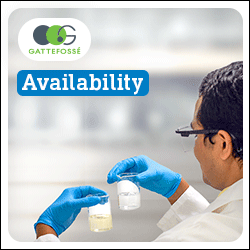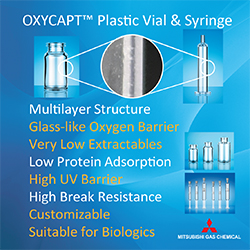ObsEva Begins Phase III Clinical Program
ObsEva SA, a Swiss biopharmaceutical company focused on the development and commercialization of novel therapeutics for serious conditions that compromise a woman’s reproductive health and pregnancy, recently announced initiation of its Phase III clinical program evaluating the efficacy and safety of nolasiban to improve pregnancy and live birth rates in women undergoing ART. The study is being conducted in 10 European countries.
Nolasiban is an oral oxytocin receptor antagonist that potentially improves pregnancy and live birth rates following embryo transfer (ET). In a completed Phase II study, 43% of patients treated with 900 mg of nolasiban before ET achieved a live birth compared to 29% of patients who received placebo.
“Based on our promising Phase II data, we are starting a large confirmatory study to assess the efficacy and safety of a single, oral administration of 900 mg of nolasiban before embryo transfer on either Day 3 or Day 5 following egg retrieval,” said Ernest Loumaye, MD, PhD, OB&GYN, CEO and Co-Founder of ObsEva. “We believe that should this trial confirm an absolute increase in live birth rates of about 10%, or greater, it would represent a major advance for the patients undergoing these demanding procedures to fulfill their desire to have a child.”
The IMPLANT2 clinical trial is being conducted at approximately 50 fertility clinics across Europe, and is expected to enroll about 760 women who are undergoing assisted reproduction by in vitro fertilization (IVF) or intracytoplasmic sperm injection (ICSI) for low fertility. Following ovarian stimulation, egg retrieval, and fertilization, eligible women will be randomized to receive either a single oral dose of 900 mg nolasiban or placebo a few hours before Day 3 or Day 5 ET. Treatment allocation will be blinded. A pregnancy test will be done after 2 weeks and pregnancies confirmed by ultrasound at 6 and 10 weeks. The primary outcome is ongoing pregnancy at 10 weeks after ET. Women with confirmed pregnancies will be monitored until the birth of their babies. Babies will be monitored for one to 6 months after birth.
Infertility affects about 10% of reproductive-aged couples, with approximately 1.6 million ART treatments (including IVF and ICSI) performed worldwide each year.
While the success of ART depends on multiple factors, such as embryo quality and ET procedure, a successful pregnancy ultimately hinges on the receptivity of the uterus to accept embryo implantation. Uterine contractions at the time of ET, as well as suboptimal thickness of the uterine wall and blood flow to the uterus, may impair the implantation of the embryo.
Nolasiban (previously known as OBE001), is an oral oxytocin receptor antagonist with the potential to decrease contractions, improve uterine blood flow, and enhance the receptivity of the endometrium to embryo implantation, all of which may increase the chance of successful pregnancy and live-birth among patients undergoing ART. ObsEva licensed nolasiban from Merck-Serono in 2013 and retains worldwide commercial rights.
ObsEva is a clinical-stage biopharmaceutical company focused on the clinical development and commercialization of novel therapeutics for serious conditions that compromise a woman’s reproductive health and pregnancy. Through strategic in-licensing and disciplined drug development, ObsEva has established a late-stage clinical pipeline with development programs focused on treating endometriosis, uterine fibroids, preterm labor and improving ART outcomes. ObsEva is listed on The NASDAQ Global Select Market and is trading under the ticker symbol OBSV. For more information, visit www.ObsEva.com.
Total Page Views: 1082













